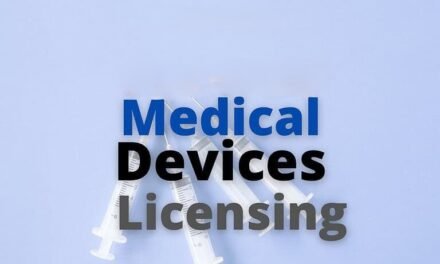
Do you have a dedicated regulatory affairs team for medical devices?

Medical devices is crucial for organizations aiming to comply with global regulatory requirements, ensuring that products meet the legal, safety, and performance standards for their target markets.
Responsibilities of a Regulatory Affairs Team:
- Regulatory Strategy Development:
- Assess global markets (e.g., FDA for the U.S., EU MDR for Europe, MDSAP markets) and develop strategies for product approval.
- Determine classification and compliance pathways for medical devices.
- Regulatory Submissions:
- Prepare and submit documentation for:
- FDA 510(k) or Premarket Approval (PMA).
- CE marking under EU MDR.
- Health Canada, ANVISA (Brazil), TGA (Australia), or MHLW/PMDA (Japan) approvals via MDSAP.
- Ensure compliance with country-specific labeling, Unique Device Identification (UDI), and post-market reporting requirements.
- Prepare and submit documentation for:
- Quality Management System (QMS) Compliance:
- Oversee adherence to ISO 13485, ISO 14971 (Risk Management), and 21 CFR Part 820.
- Manage audits and inspections (e.g., FDA, Notified Bodies, or MDSAP Audits).
- Risk Management and Vigilance:
- Conduct risk assessments and ensure compliance with ISO 14971.
- Monitor and report adverse events or device malfunctions under local vigilance systems (e.g., FDA’s MDR, EU vigilance system).
- Post-Market Surveillance:
- Monitor product performance, analyze customer feedback, and manage corrective and preventive actions (CAPA).
- Ensure compliance with post-market clinical follow-up (PMCF) and reporting.
- Document Control and Compliance:
- Maintain regulatory documentation, including Technical Files, Design Dossiers, and clinical evidence.
- Ensure labeling, marketing, and advertising materials comply with local regulations.
- Cross-Functional Collaboration:
- Work closely with R&D, manufacturing, quality assurance, and marketing teams to integrate regulatory requirements into product development.
Benefits of a Dedicated RA Team:
- Global Market Access: Expertise in diverse regulatory frameworks facilitates quicker entry into new markets.
- Reduced Risk: Ensures compliance, reducing the risk of recalls, penalties, or bans.
- Streamlined Product Lifecycle: Integrates regulatory requirements into every phase, from design to post-market activities.
- Efficient Communication with Authorities: Maintains proactive communication with regulatory bodies (e.g., FDA, Notified Bodies).




























